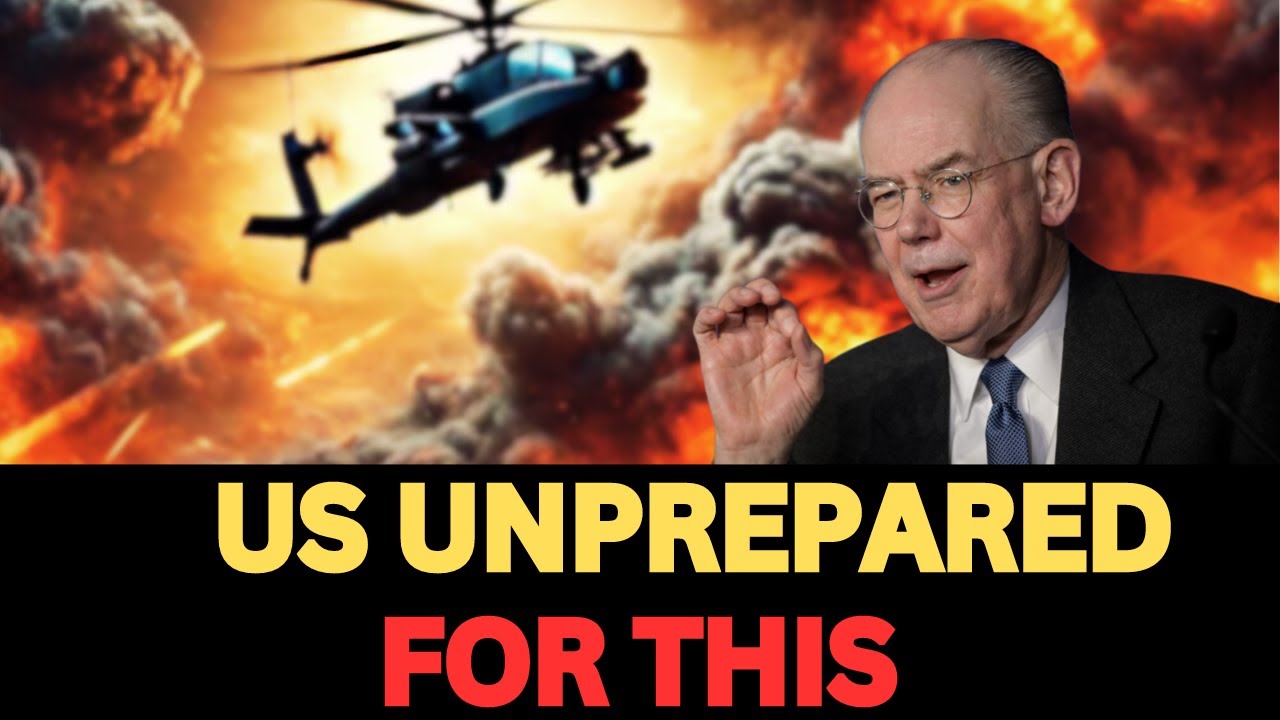Iran faces difficult decision as Middle East tensions rise
Summary
TLDRThe video discusses the escalating tensions in the Middle East, with a focus on the potential for a large-scale conflict involving Israel, Hezbollah, and possibly Iran and the United States. It highlights Israel's aggressive stance against Hezbollah, the potential for Iran to be drawn into the conflict, and the strategic implications of such a development. The conversation also touches on Cyprus's role as a potential refuge for those fleeing Lebanon and the broader geopolitical consequences of the situation.
Takeaways
- 🌍 The situation in the Middle East is escalating towards a potential large-scale conflict involving Israel, Hezbollah, and possibly Iran and the United States.
- 🚨 There is an increase in missile strikes between Lebanon's Hezbollah and Israel, with the potential for further military escalation.
- ⚠️ Israeli Prime Minister Netanyahu's recent statements suggest a possible ground invasion of Lebanon, which could significantly worsen the situation.
- 🇨🇦 Cyprus is preparing to host British and US nationals fleeing Lebanon, indicating the severity of the potential conflict.
- 🏰 The Netanyahu government is believed to be seeking a wider war in the Middle East, with a focus on escalating conflict with Hezbollah and Iran.
- 🔄 Israel's strategy appears to be inflicting damage on Hezbollah to provoke a response that could draw Iran into the conflict.
- 🤔 There is speculation about whether Israel would actually send ground troops into Lebanon, as this could shift the balance in Hezbollah's favor.
- 🔄 The current Israeli tactics seem to be creating tensions between Hezbollah and Iran, potentially weakening their alliance.
- 🇮🇷 The Israeli government might believe that regime change in Iran would stabilize the Middle East and secure their interests, a view considered reckless by some.
- 🔄 Iran is in a difficult position, facing criticism from its allies for not responding strongly to provocations, which could lead to a larger conflict if they choose to engage.
- ♟️ The situation draws parallels to historical events, such as the Vietnam War, where escalation can lead to long, drawn-out conflicts with unpredictable outcomes.
Q & A
What is the main concern discussed in the transcript about the Middle East?
-The main concern is the potential escalation of a large-scale war in the Middle East involving Israel, Hezbollah, and possibly Iran and the United States.
Why is there a worry about a conflict between Israel and Hezbollah?
-There is a worry because the conflict could escalate to involve other regional powers like Iran and draw in global powers such as the United States, leading to a broader war.
What steps is Cyprus taking in response to the situation in Lebanon?
-Cyprus is preparing to host British, US nationals, and other individuals fleeing Lebanon due to the escalating conflict.
What does the speaker believe is the Netanyahu government's strategy?
-The speaker believes the Netanyahu government is seeking a general escalation of conflict against Hezbollah and ultimately against Iran.
What recent actions by Israel are mentioned in the transcript?
-Israel's recent actions include missile strikes against Lebanon and Hezbollah, and the killing of Hezbollah commanders.
What is the significance of the pager attacks mentioned in the transcript?
-The pager attacks are significant as they represent a humiliating blow to Hezbollah, denting its perceived invincibility.
Why does the speaker think Israel is not sending ground troops into Lebanon?
-The speaker thinks Israel is not sending ground troops to avoid fighting Hezbollah on its home ground, where Hezbollah has the advantage.
What is the speaker's view on the potential involvement of Iran in the conflict?
-The speaker believes that involving Iran would be strategically unwise and could lead to a long and damaging war for Israel.
What does the speaker suggest is the Israeli government's ultimate goal?
-The speaker suggests that the Israeli government's ultimate goal is to achieve regime change in Iran, which they believe would stabilize the Middle East in Israel's favor.
How does the speaker describe the current Iranian response to the conflict?
-The speaker describes Iran's response as hesitant and criticized by its allies, which could lead to a weakening of alliances if Iran does not take a stand.
What historical parallel does the speaker draw in relation to the situation in the Middle East?
-The speaker draws a parallel to the early stages of the Vietnam War, where the South Vietnamese government's actions eventually drew in the United States, leading to a prolonged and costly conflict.
Outlines

Dieser Bereich ist nur für Premium-Benutzer verfügbar. Bitte führen Sie ein Upgrade durch, um auf diesen Abschnitt zuzugreifen.
Upgrade durchführenMindmap

Dieser Bereich ist nur für Premium-Benutzer verfügbar. Bitte führen Sie ein Upgrade durch, um auf diesen Abschnitt zuzugreifen.
Upgrade durchführenKeywords

Dieser Bereich ist nur für Premium-Benutzer verfügbar. Bitte führen Sie ein Upgrade durch, um auf diesen Abschnitt zuzugreifen.
Upgrade durchführenHighlights

Dieser Bereich ist nur für Premium-Benutzer verfügbar. Bitte führen Sie ein Upgrade durch, um auf diesen Abschnitt zuzugreifen.
Upgrade durchführenTranscripts

Dieser Bereich ist nur für Premium-Benutzer verfügbar. Bitte führen Sie ein Upgrade durch, um auf diesen Abschnitt zuzugreifen.
Upgrade durchführenWeitere ähnliche Videos ansehen

India Cancels All Flights to Israel | Something Big is about to happen between Iran and Israel

IRAN BEYOND HOPE: Tehran Witnesses Power Of Israeli F-35s & U.S F-22s! History Rewritten!

ISRAEL-IRAN | An Inevitable War?

What might Hezbollah, Israel and Iran do next? | BBC News

John Mearsheimer: Russia and lran alliance to include NK and China soon | Dangerous Combination?

Israeli military says Iran has launched missiles towards Israel | BBC News
5.0 / 5 (0 votes)
